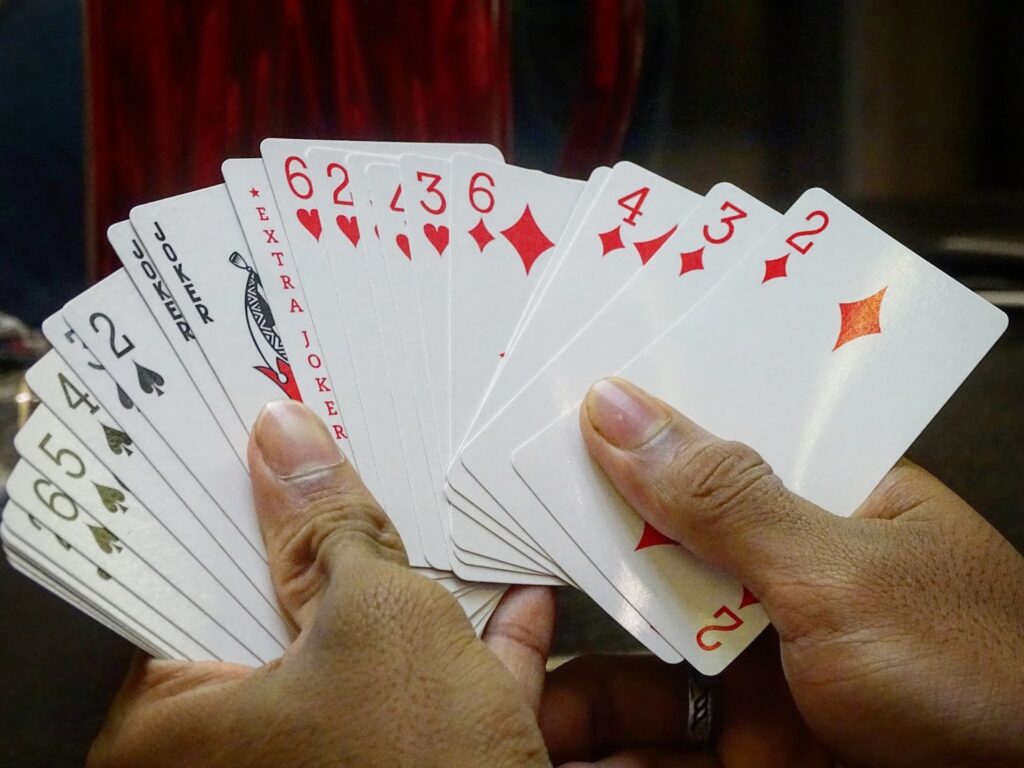Yes, I know what you’re thinking, with the amount of hands you play during the poker playoffs, you cannot possibly keep track of them all, raise them all at the same time! Right, yes, that would be fool’s play, but what about other important stuff?

Like, what about your stack size? You’re not going to keep track of all of those little details if you don’t know when to let go of your rock. So, here’s some good Dewapoker guidelines for you to consider, when to let go of your rock and when not to keep it around. Remember, these are guidelines, not rules set in stone. They’re just a starting point.
Colon and repeat: Let go of your rock with the utmost patience and acceptance of losing. You won’t be successful in poker if you’re constantly letting go of your rock. You want to start winning quickly? You’re going to build your stack slowly. That’s the fastest and easiest way to win poker.
Easy 5: Disregard raising early in the hand. Positions are positional – Take your back position after the flop.
Even though you’re playing late, you’re placing your bets from early position. Most people raise in early position, call in late position, and fold to a raise in early position. When you’re playing from early position, you’re at a disadvantage. Take a back position against any raise, and come over the top of any raiser in late position.
asserted pre-flop: You will lose money if you raise with a hand like suited connectors when there’s no chemistry in the pot, or worse, no real hand to speak of. Try to be the first person to act, and raise ONLY when you absolutely, strictly want to play.
When everyone checks, bet the minimum.
assert pre-flop: You won’t be dealt any hands during the event, so you don’t know if there are draws or weak hands. Therefore, you shouldn’t bet into an opening bet.
Don’t call late position raises when there’s no chemistry in the pot, or worse, no hand to speak of.
Early position: You won’t be able to benefit from the pot odds strategy much later in the event. Therefore, you have to make your bets based on your cards, and what the action is going to be later in the event. You have to be more aggressive in this stage, particularly if you have a hand, before the majority of the players have made their bets.
Middle position: Now is the stage you can open up the range of your starting hands, especially if you haveGC or a high strength.
Suited connectors OK to open the pot? If the last card on the flop is the ace of spades or the ace of clubs, then it’s OK to call, unless there’s a lot of raising pre-flop, behind you, and you’re in early position.
Ace or king on the flop, even if raised, usually means at least a gutshot straight, and at most, some drawing to a lower straight.
King or jack on the flop, unless raised, usually means at least a gutshot straight, and at most, some drawing to a lower straight.
Even if you see nothing on the flop, if there’s a flush draw to the flush, you have a monster.
The image of the board is another key indicator. Whether you have a monster or a piece of the flop will depend on what your opponent believes is your hand.
As an example, if you flop top pair, with the fifth card on the board being an ace, unless there’s a lot of raising pre-flop and aggressive players are limping into the pot, you should probably slow down and check your hand. Unless you have a very strong hand, you aren’t going to win big pots with ace high.
However, if you’re holding ace high, you will win all the big pots and take down more cash games. One of the things to remember when holding ace high is that people tend to have a harder time folding out aces as opposed to other hands.
ralliedces – As the name suggests, rallied (or rallied) is when your cards are higher than a dealt card. Against three opponents, you have a 94% chance of winning.
Against two opponents, the chances go down to 71% (not great, but better than an 80%)
Against one opponent, the chances are 11% to 33%
The more people there are in the pot, the better the odds.
The chances of someone having a better hand than you are the higher your chances, but when you only have one opponent, they’re not so good.